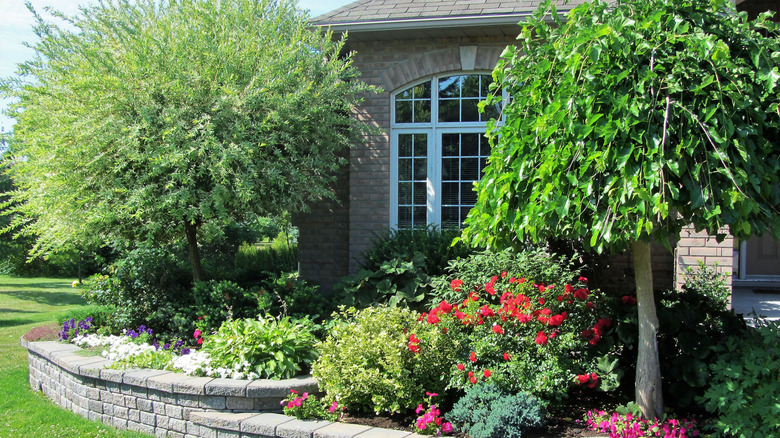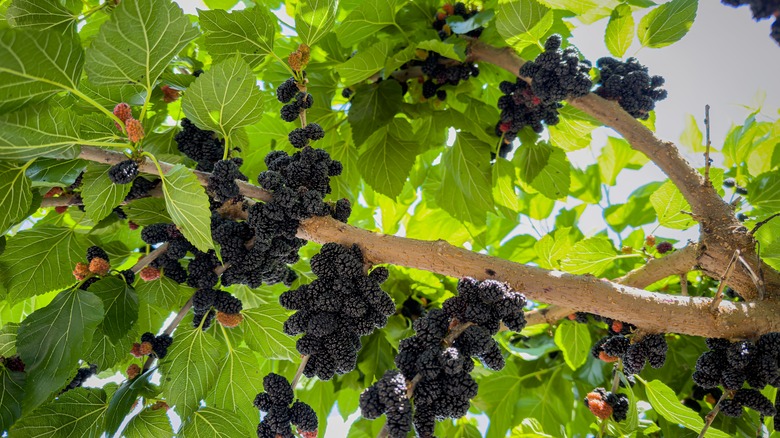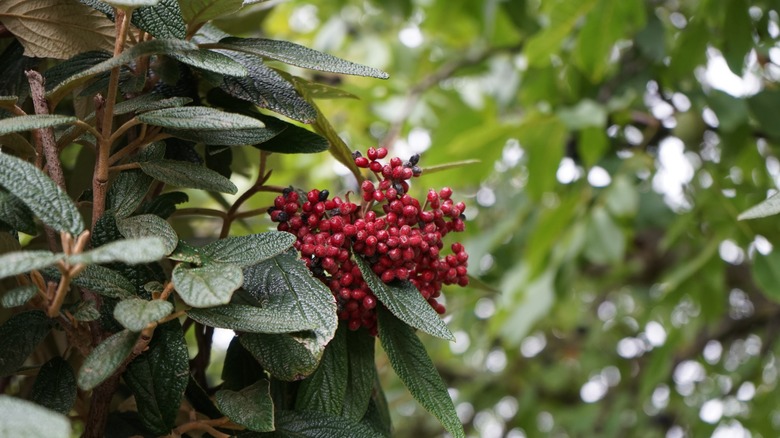Think Twice Before Planting This Bird-Attracting Tree In Your Yard
Becoming a homeowner comes with many joys, and one of those joys is the ability to select precisely which trees, shrubs, and plants will make up the landscape of your yard. In the excitement of choosing your own garden design, it can be all too easy to forgo the necessary research and plant a tree that ends up being more of a nuisance than an asset to your property. One such tree is the mulberry.
Desiring the aesthetic of a mulberry tree for your yard is understandable. The tree itself is rather elegant looking with its tall height and toothy leaves. Its berries look like wild raspberries, ranging from bright red to deep purple-black. Mulberry trees also attract hoards of birds thanks to those berries, which many homeowners may initially find delightful. Unfortunately, the messy nature of its fruit and the propensity to attract swarms of feathered friends make the mulberry tree unsuitable for the average home landscape. Here's why.
Drawbacks of owning a mulberry tree
While a mulberry tree may look majestic, the tree's appearance does not outweigh its long list of negative attributes. The most obvious issue caused by the tree is caused by its berries. While mulberries might look like raspberries, they do not offer the same attractive flavor and aren't as readily consumed by people (although many foragers do eat them raw or turn them into a sweetened jam). This leaves them available for birds, which they can attract in rather large quantities.
While having a yard full of birds may sound pleasant, this is not the case when those birds are feasting on mulberries. They stain surfaces on contact, even after they've been digested and excreted. This means that the droppings of birds who eat them will leave red and purple stains all over your vehicle, driveway, sidewalk, porch, pool, lawn furniture, and any other exposed outdoor surfaces. Aside from this issue, mulberry trees are self-seeding, so new trees will spring up wherever berries or bird droppings happen to fall.
Alternatives to mulberry trees
Deciding against planting a mulberry tree in your yard doesn't mean that you have to forgo all attractive fruiting trees. Several types of trees can offer the same aesthetic of a mulberry tree without the many concerns that mulberry trees can cause for homeowners. Native trees like chokecherry, viburnum, and juniper can all provide your property with a striking tree and vivid berries without inviting as many pests or creating massive messes.
Berries with a harder outside membrane —like blueberries —are less messy on your property than soft berries such as raspberries and mulberries. Some fruiting trees — like juniper and some varieties of viburnum — are evergreen, meaning that they can provide greenery year-round (even through the coldest of winters). When planning the landscape of your lawn, be sure to take the time to research every tree and plant you intend to add to ensure that it will work with your property and your intentions for how you and your household will use it.


